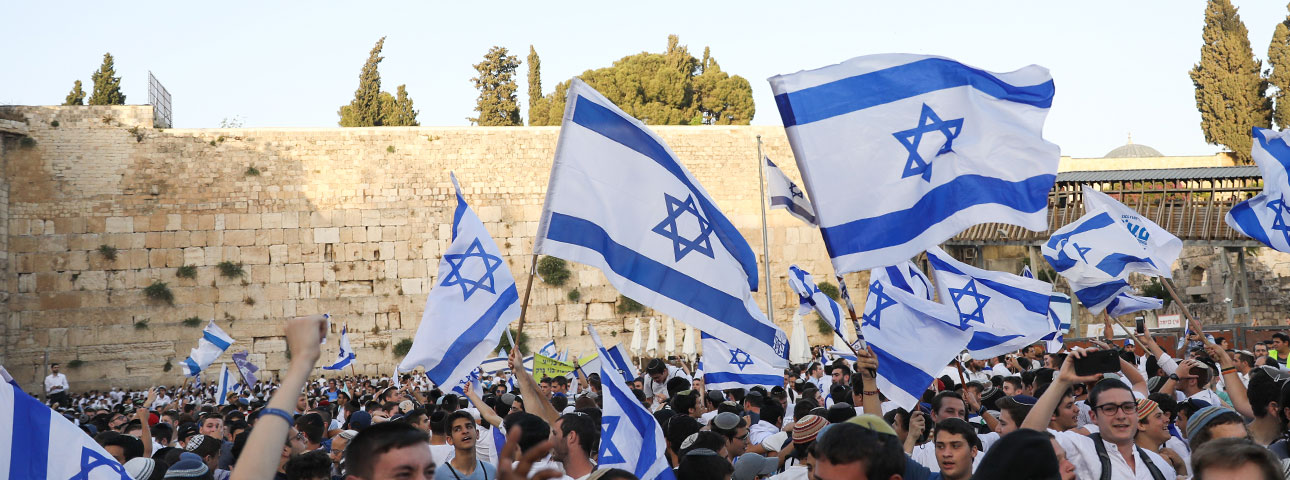Religion and State: Israelis Seek Change in Existing Arrangements
Even though most Israelis support opening businesses & public transportation on Shabbat issues of religion and state will not decide the September elections.

Flash 90
One month to the elections, the Guttman Center at the Israel Democracy Institute, published a special survey on questions pertaining to religion and state, which have often triggered coalition crises, dismantled governments, and led to elections. By contrast, the current survey found that, although most of the Jewish public supports opening businesses and public transportation on Shabbat, as well as civil marriage and equal access to prayer at the Kotel – questions pertaining to religion and state are not a high priority when deciding who to vote for.
What will decide the upcoming elections?
The two most important issues facing the Jewish public in Israel, based upon which they will decide for which party to vote in the upcoming elections, are economic and social issues (36.7%) and security and foreign affairs (36.2%). Only 15.5% of Jews regard religion and state as “extremely important”.
Looking at these findings from the perspective of the secular-ultra-Orthodox spectrum reveals that while 67.5% of the ultra-Orthodox regard religion and state as of paramount importance, 53% of the national religious, 44% of the traditional religious and 47% of the traditional non-religious consider issues of security and foreign affairs as most important. Among the secular, 45.5% view economic and social issues as the key consideration when deciding which party to vote for.
The survey once again proves that the majority in Israel is seeking to change existing arrangements. The upcoming elections provide us with a historical opportunity to finally make decisions in accordance with the will of the majority and to adapt the status quo to today’s Israel – on the basis of broad consensus and mutual understanding.Dr. Shuki Friedman
Ultra-Orthodox conscription to the IDF
68.5% of Jews support "recruiting young ultra-Orthodox”, while exempting a small number of outstanding scholars, who will remain in yeshivas. 79% of secular and non-religious, 70.5% of religious, and 59% of national-religious support this. Among the ultra-Orthodox 91.5% oppose this idea.
Religion and State - can they coexist?
Public Transportation on Shabbat
60% of the Jewish public thinks that public transportation should be allowed on Shabbat throughout the country, except in areas where there is a religious or ultra-Orthodox majority. As expected, there is overwhelming resistance (97%) among the ultra-Orthodox, in contrast with significant support from the secular public (86%). 60% of Jews also support the opening of supermarkets on Shabbat, except in areas where there is a religious or ultra-Orthodox majority.
Rabbinate’s monopoly on Kashrut
63% of all Jews support putting an end to the Chief Rabbinate’s monopoly on kashrut; among the secular—89%; and the traditional non-religious—70%.
In sharp contrast, 95.5% of the ultra-Orthodox; 63% of the national religious and 48% of the traditional religious oppose doing away with the Chief Rabbinate’s monopoly.
Civil Marriage
59.5% of all Jews support civil marriage; 84.5% of secular Jews; 68% of the non-religious, 41% of the religious and only 22.5% of the national religious support civil marriage for the citizens who choose this option. Not surprisingly, 96% of the ultra-Orthodox oppose civil marriage.
Egalitarian prayer at the Kotel
About half (51.5%) of the Jewish public in Israel believes that egalitarian prayer for women and non-Orthodox denominations should be allowed in a separate plaza at the Kotel. While most of the ultra-Orthodox (98.5%), most of the national religious (72.5%), 60% of the religious and 45% of the non-religious are opposed. In fact, only the secular majority (78%) supports such an arrangement.
Dr. Shuki Friedman, Director of the Center for Religion Nation and State at the Israel Democracy Institute said: “The survey once again proves that the majority in Israel is seeking to change existing arrangements. The upcoming elections provide us with a historical opportunity to finally make decisions in accordance with the will of the majority and to adapt the status quo to today’s Israel – on the basis of broad consensus and mutual understanding”.
The survey was conducted between August 7-8, 2019 through the PanelsLTD Online Survey to examine the attitudes of the Jewish public in Israel on matters of religion and state. The survey included 760 respondents, representing a representative sample of the Jewish population in Israel. The maximum sampling error for the entire sample was 4%± at a confidence level of 95%.
- Tags:
- Surveys and Polls,
- Religion and State,
- religion and state,
- Religious-Secular Relations,
- secular and religious Law,
- ultra-Orthodox/Haredi,
- Religious Zionism,
- Israeli society,
- Religion and State Program,
- The Joan and Irwin Jacobs Center for Shared Society,
- Viterbi Family Center for Public Opinion and Policy Research
